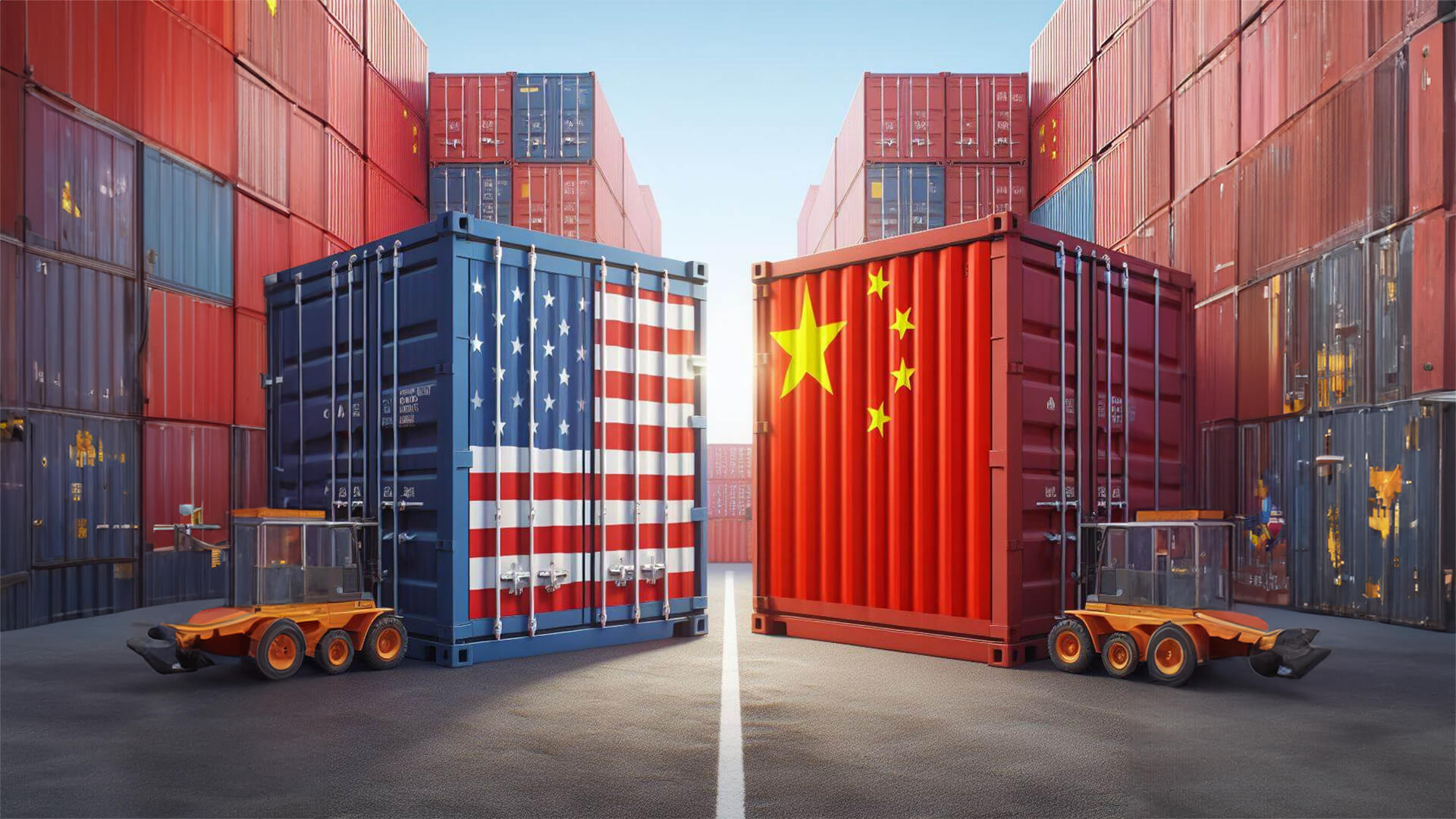Hey, everyone. Peter Zeihan here. Coming to you from Austin, Texas. A lot of you have written in over and over and over, asked me what I really do worry about. And so that’s the topic of today’s video. Overall, I am not stressed out about the United States. There aren’t a lot of things that can hurt us.
We basically have a hemisphere to ourselves. Certainly the best part of the continent. And, we’re energy independent. We’re a massive energy and food exporter, and you can have entire continents catch on fire. And it really doesn’t do anything to the United States. In addition, if you factor out things like food and energy exports, the United States is only integrated with the rest of the world to about the tune of 10% of GDP, which is somewhere between one third and one fifth.
What more traditional world powers historically have been, whether you’re talking about the British Empire or the China of today? So if things would have to go really bad on a global basis for the United States to really even have a mild problem, that doesn’t mean there aren’t problems. It just means you have to look a little bit closer to home.
I’m not talking about here politics. I’m talking about drugs. Now, the traditional story has been one of cocaine. And cocaine is, from my point of view, pretty easy to understand because it has straightforward concentrations and straightforward vulnerabilities that you would expect from an agricultural supply chain. So you grow the stuff in a specific type of climate in Bolivia and Ecuador.
In Colombia, you harvest the leaves, you dry them, you process them oftentimes with gasoline, you make a crystal, you turn that into powder, and then you smuggle the powder, by water and by air into Central American countries. And then you get on land and you go up through the various mountain corridors of Central America and Mexico until you eventually reach the U.S. border, and then you distribute it from there.
As a rule, looking at this from an economist point of view, it takes about six man hours per dose of cocaine. And the gross is going to vary by person, but it’s going to be less than half a gram unless you just want to like, cheat death or risk death or die.
A lethal dose is about 1.2g. So, you know, definitely cocaine is bad, but don’t do more than a gram. Okay. That is something that we understand. And there are a number of places in the supply chain where you can not interrupt it. You can try to do crop eradication at the point of source. You can try to work with third governments like Colombia to try to interdict.
You can work with the Mexicans in order to break up the cartel network that handles distribution. Or you can go against retail distribution in the United States, by going after the gangs. These are all options, and we’ve explored all of them in the past. But none of these really work very well for the new drug, which is called fentanyl.
Fentanyl, unlike cocaine, is not organic. It’s not an agricultural product. It’s a synthetic, a chemical process. And the process for creating is much simpler than it is for cocaine. You use a number of base materials, and you don’t really need all that many of them. And a lot of the precursors are just flat out legal.
So what happens is in China, they make the precursors and then American citizens, as a rule, order them and they’re shipped in containers about the size of this. This is about a half a liter. And you get about six equivalent of these, and you get them to the United States. You repackage them, you take them down to the Mexican border, and then you use the Mexican postal system to ship them to wherever they need to go.
And for the most part, these steps are legal because the precursors can be used in other materials. Once the precursors get to somebody who has a garage set up for chemical work, you basically take the equivalent of people who barely passed high school chemistry. And if you’ve got three of them in a hotplate, you can basically make about a kilogram of finished fentanyl in about a week.
That assumes that you have relatively incompetent lab techs. If they’re not, Cramer quality, if they actually made it through undergrad, you can probably make about three kilos. That stuff then can be pressed into pills and sent north much smaller volumes involved. So remember cocaine about 1.2g is a lethal dose. That same 12. two grams of fentanyl would be enough to kill over 500 people.
You’re talking about just a couple grains of sand equivalent is enough to kill someone, and this is why it’s become such a problem in the United States. Because instead of six man hours per dose, it’s just a few man seconds per dose. And it’s a synthetic and there are fewer places that you can interrupt it.
Now, fentanyl has another problem because it’s so easy to get into the business because with one week of work, you can make a few million dollars. That same fentanyl, doesn’t require the huge sorts of structures, social structures, cultural structures, economic structures that are needed for the cocaine economy.
So with cocaine, because it’s all about controlling the transit systems, the production sites, you get cartels at the point of production in points of transit, and then you’ve got the gangs and the points of distribution
in Mexico that has created the cartels, who’ve taken a big chunk out of the transit system and then worked up and down the transit systems to control more and more territory with fentanyl.
That doesn’t work so well because fentanyl just needs, you know, three dudes in a garage and, you know, a mailbox. And that means that we’re seeing dozens, if not hundreds of millionaires popping up in New Mexico, organized crime groups that are largely disassociated from the cartels. Or maybe they rely on the cartels for shipping, but they don’t necessarily need to.
It also means that fentanyl tends to be a lot more lethal, not just because it requires so much less. It’s like the individual mom and pops don’t perceive. The quality control is one of their major concerns, so they just press the stuff in tablets and off it goes. And since it takes so little to kill someone, we’ve had 100,000 people die in 2022 and 2023 from fentanyl overdoses in the United States.
Now, in recent times, we’ve seen kind of three things happen. Number one, the cartels are starting to fracture. They’re not as powerful as they used to be. And smaller factions are getting into, fentanyl manufacture, thumbing their nose at the central authorities of the cartel leadership, regardless of where in Mexico you are. So we’re actually seeing a lot more violence in Mexico rather than less, in part because now we’ve had a kind of democratization of the supply chain system for illegal drugs in Mexico.
Second, in the United States, we have seen fatality rates drop. A couple reasons for that. Number one, those mom and pops are starting to realize that if you kill all of your customers, they don’t buy anymore. So four fentanyl pills that have been intercepted by law enforcement, only about half of them now have lethal doses only, as opposed to 70% from 2 or 3 years ago.
So, you know, from a production point of view, I guess there’s some quality control going in there. A second, if you are a teenager and you look at people in your 20s who are basically killing themselves with fentanyl, you know, maybe that’s not the drug for me. And, other more traditional drugs like it’s methamphetamine and cocaine are making a little bit of a comeback.
Whether this trend has legs is something that we just don’t know. There’s so much about drugs that are a fad issue, and it’s unclear whether or not today’s, Zoomers have moved on from fentanyl, or they’re just taking a break for a moment. I don’t know what to cheer for. There. Third, because the cartels are breaking down. We’re seeing a few problems with transit.
If you have lots and lots and lots of cartel and cartel violence, oftentimes the shipment doesn’t make it on time. But probably the biggest reason we’ve seen deaths go down in the United States is it’s not new anymore.
So hospitals and clinics have a little bit better idea of what to look out for. And they’ve developed some protocols and some medications to help people survive overdoses. It’s kind of like how during the Iraq War, we saw a lot more soldiers live, but with horrible wounds, because medical care had improved, to deal with things like IEDs.
So if you’re looking for something to worry about, I don’t worry so much about Trump. I don’t worry so much about radical Democrats. I don’t worry so much about Iran or Russia. Unless nukes get involved. I worry about America’s drug habits and how we’ve seen a democratization of the violence in Mexico that is breaking down the social stability of our primary trading partner.
And if you want something a little bit more at home to worry about, let’s assume for the moment that the Mexicans succeed in driving fentanyl out of their system completely. What only takes three Japanese in a garage to do it? And those Japanese don’t have to speak Spanish. So if Mexico stops being the primary processing place for fentanyl demand in the United States, Americans are perfectly capable of picking up that baton and processing the fentanyl in anyone who has a garage and a power.
Photo by Wikimedia Creative Commons and DEA











